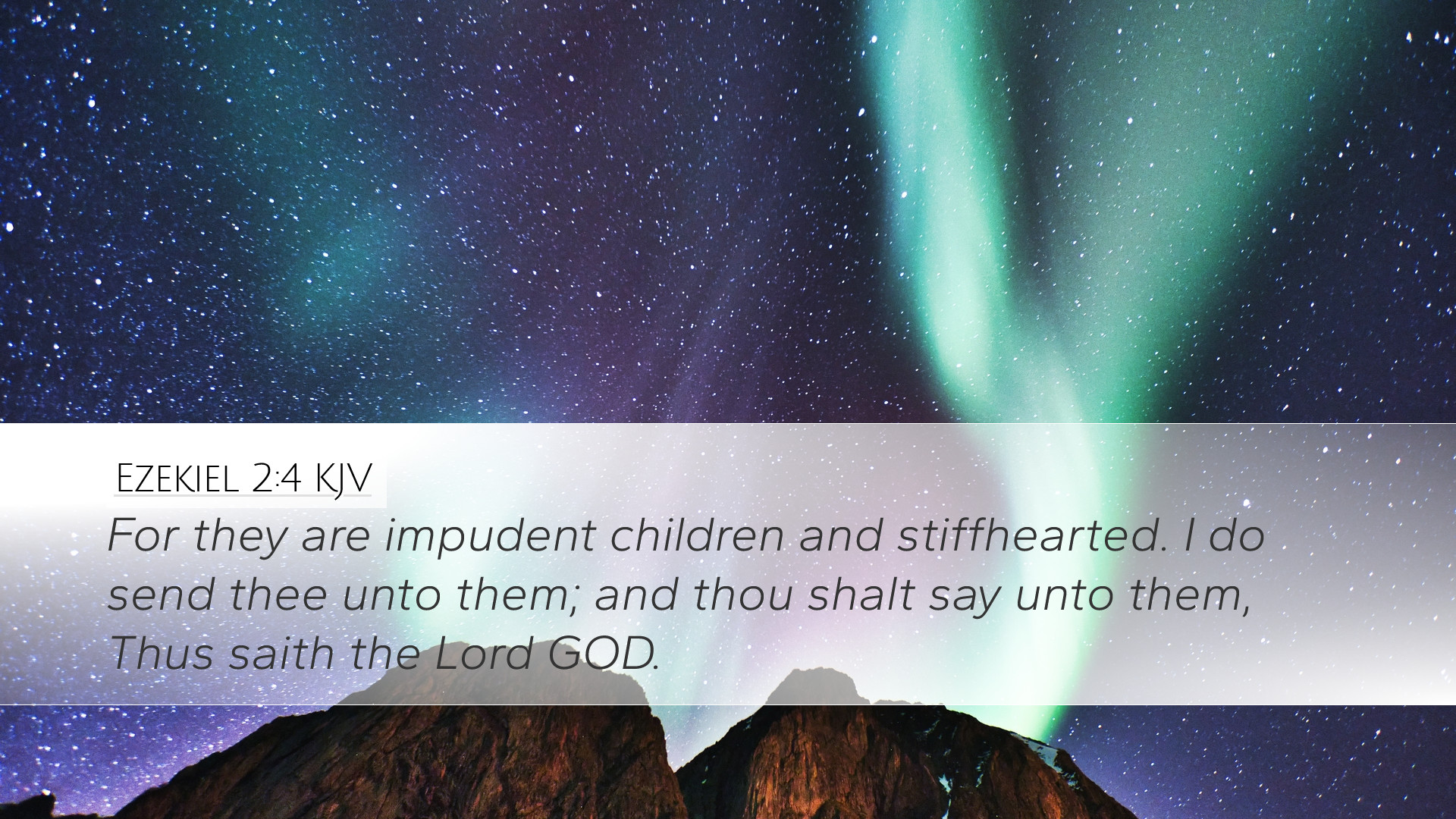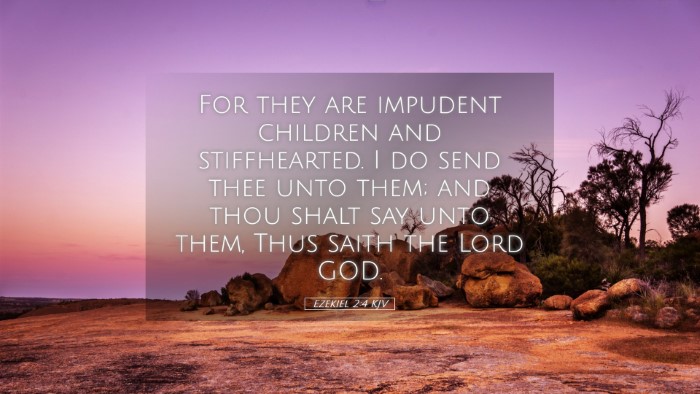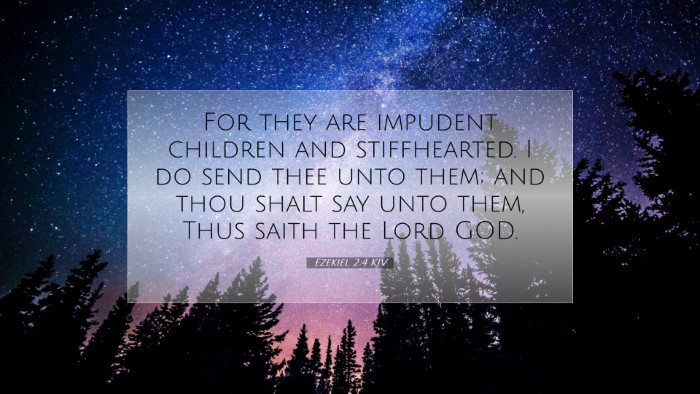Ezekiel 2:4 - Commentary and Insights
Ezekiel 2:4: "And I send thee to the children of Israel, to a rebellious nation that hath rebelled against me: they and their fathers have transgressed against me, even unto this very day."
Introduction
The verse presented provides a significant insight into the prophetic mission of Ezekiel and the socio-spiritual context of Israel at the time. In this commentary, we will distill wisdom from public domain sources including Matthew Henry, Albert Barnes, and Adam Clarke, to explore the depth of this passage.
The Commission of the Prophet
Ezekiel's calling is not merely a personal journey; it is a divine appointment with a nation whose history is steeped in rebellion against God. This verse highlights several themes that are essential for pastors, students, and theologians:
- Divine Authority: The directive is clear that it is God who sends Ezekiel. This underscores the principle that prophetic ministry originates from Divine calling and authority (Henry).
- Target Audience - A Rebellious Nation: The phrase "rebellious nation" reflects a portrait of the people who have turned their backs on the covenant relationship with God. This enduring characteristic compels the prophet to confront systemic sin and call for repentance (Barnes).
- Historical Continuity of Rebellion: The transgression is noted as a persistent issue ("even unto this very day"), linking the current state of the nation with the historical rebellion initiated by their forefathers (Clarke).
Exegesis of Key Phrases
Each phrase of the verse contributes to our understanding of God's message to Ezekiel, and subsequently to the people:
- "I send thee": God equips Ezekiel with authority and purpose. This emphasizes that true ministry is God-initiated, confirming that Ezekiel's mission is not self-appointed (Henry).
- "Children of Israel": This title evokes a sense of heritage and covenant, positioning the audience as recipients of God’s promises, thus intensifying the tragedy of their rebellion (Barnes).
- "A rebellious nation": The term 'rebellious' is significant as it reveals not just passive disobedience but an active resistance to God's rule and His laws (Clarke).
Theological Implications
This passage is rich in its theological implications, contributing to our understanding of God’s holiness, justice, and mercy.
- God’s Holiness: God's holiness demands accountability. Ezekiel's message serves as a reminder that rebellion against God incurs serious consequences (Henry).
- Divine Patience and Mercy: Even amidst rebellion, God's decision to send a prophet underscores His desire to redeem and restore His people rather than abandon them (Barnes).
- Prophetic Responsibility: Ezekiel's task emphasizes the weight of prophetic ministry, encouraging a serious contemplation of the responsibilities that come with divine commission (Clarke).
Practical Applications
For contemporary readers, especially leaders within the church and theology students, this passage imparts valuable lessons:
- Courage in Confrontation: Like Ezekiel, pastors are called to confront the issues of sin within their communities, requiring a balance of boldness and grace (Henry).
- Awareness of Historical Patterns: Recognizing that rebellion against God can persist through generations emphasizes the need for repentance and reaffirmation of God’s truth in communities (Barnes).
- Commitment to Divine Mission: Understanding one’s calling as a minister involves dedication to God’s purpose over personal comfort. Ezekiel's resolve to fulfill God’s message encourages modern-day ministers to remain steadfast (Clarke).
Conclusion
Ezekiel 2:4 is not just a historical record but a poignant reminder of the ongoing struggle between rebellion and faithfulness to God. Through the insights of esteemed biblical commentators, we see profound implications for the church today, and we are encouraged to faithfully proclaim the truths of God even amid a culture that often resists His ways.


